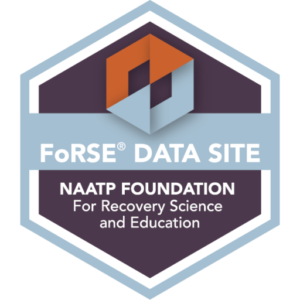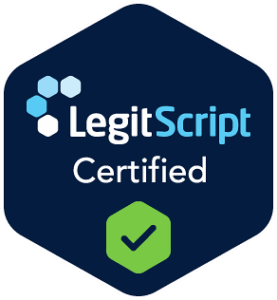Addiction is a complex and deeply personal struggle, often affecting every area of a person’s life. From emotional regulation to physical health, social relationships, and work performance, the impact of substance use disorders can be profound. But there is hope. With the right treatment approach—particularly therapy—people can and do recover.
Understanding the types of therapy available, how they work, and what makes them effective is essential for individuals and families navigating the recovery journey. While there is no one-size-fits-all answer to the question of the best therapy for addiction, there are many evidence-based options that can be tailored to fit individual needs.
Addiction and the Need for Therapy
Addiction is more than just a physical dependence on a substance. It’s a mental health condition that affects the brain’s reward system, decision-making processes, and emotional regulation. Therapy addresses the psychological, behavioral, and emotional factors that drive addiction—factors that detox alone cannot resolve.
Without therapy, individuals are more likely to relapse, as the underlying causes of addiction—such as trauma, co-occurring mental health conditions, stress, or learned behaviors—remain unaddressed. That’s why therapy is a cornerstone of most addiction treatment programs.
Why Therapy Is Essential in Addiction Recovery?

Therapy provides individuals in recovery with the tools they need to manage cravings, recognize triggers, build healthier habits, and repair relationships. It helps them understand the root causes of their substance use and develop strategies for long-term sobriety.
Additionally, therapy fosters self-awareness, emotional regulation, and communication skills. These are vital components in rebuilding a stable, substance-free life. Whether it’s one-on-one counseling or group support, therapy allows individuals to explore their experiences in a safe, structured environment with professional guidance.
Different Types of Therapy for Addiction Treatment
There are several therapeutic approaches used in addiction treatment, each targeting different aspects of the recovery process. Some focus on changing behavior, while others aim to improve emotional well-being or motivation.
Common types of addiction therapy include:
- Cognitive Behavioral Therapy (CBT)
- Dialectical Behavior Therapy (DBT)
- Motivational Interviewing (MI)
- Contingency Management (CM)
- 12-Step Facilitation Therapy
- Holistic therapies (such as yoga, meditation, and art therapy)
Each of these therapies has its place in a comprehensive treatment plan, and the most effective programs often use a combination tailored to the individual.
[lightweight-accordion title=”Cognitive Behavioral Therapy (CBT) for Addiction”]CBT is one of the most widely used and well-researched therapies for addiction. It focuses on identifying and changing negative thought patterns and behaviors that contribute to substance use.
Through CBT, individuals learn to:
- Recognize situations that trigger cravings
- Develop coping skills to handle stress or emotional discomfort
- Challenge irrational or harmful beliefs
- Build healthier routines and decision-making processes
CBT is structured, goal-oriented, and effective for many types of addiction. It’s especially helpful in early recovery when individuals are learning how to navigate life without substances.
[/lightweight-accordion] [lightweight-accordion title=”Dialectical Behavior Therapy (DBT) and Emotional Regulation”]Originally developed for individuals with borderline personality disorder, DBT has proven highly effective for those struggling with addiction and co-occurring mental health issues.
DBT helps individuals regulate intense emotions, tolerate distress without turning to substances, and improve interpersonal relationships. The core components include:
- Mindfulness: Learning to stay present in the moment
- Distress Tolerance: Managing crises without resorting to drugs or alcohol
- Emotion Regulation: Understanding and adjusting emotional responses
- Interpersonal Effectiveness: Navigating relationships in a healthy way
DBT is especially beneficial for individuals with a history of trauma or emotional dysregulation, providing essential tools for managing triggers without relapse.
[/lightweight-accordion] [lightweight-accordion title=”Motivational Interviewing (MI) for Behavior Change”]Motivational Interviewing is a client-centered counseling approach that helps individuals resolve ambivalence about quitting substances. Rather than telling someone what to do, MI empowers them to find their own motivation for change.
MI techniques include:
- Expressing empathy and non-judgment
- Developing discrepancy between current behavior and future goals
- Rolling with resistance instead of confronting it
- Supporting self-efficacy and belief in change
MI is often used early in the treatment process to build engagement, especially with individuals who are unsure if they’re ready for sobriety.
[/lightweight-accordion] [lightweight-accordion title=”Contingency Management: Reward-Based Recovery”]Contingency Management (CM) uses positive reinforcement to encourage abstinence and healthy behaviors. Individuals receive tangible rewards (like vouchers or small gifts) for meeting treatment goals, such as negative drug tests or attending therapy sessions.
Studies show that CM can significantly improve retention in treatment and reduce relapse rates, especially in stimulant use disorders like methamphetamine or cocaine addiction.
While CM may seem simplistic, it taps into the brain’s reward system in a healthy way, reinforcing the benefits of sobriety through immediate, positive feedback.
[/lightweight-accordion] [lightweight-accordion title=”12-Step Facilitation Therapy and Peer Support”]12-Step Facilitation Therapy is designed to introduce individuals to the principles of 12-step programs such as Alcoholics Anonymous (AA) or Narcotics Anonymous (NA). This type of therapy helps participants accept the need for help, surrender to a higher power (as they define it), and begin making amends.
The peer support model of 12-step groups can be incredibly powerful, offering:
- A sense of community and shared experience
- Accountability through group involvement
- A structured path to long-term recovery
- Ongoing, accessible support post-treatment
Many recovery programs incorporate 12-step principles alongside clinical therapy for a well-rounded approach.
[/lightweight-accordion]Individual vs. Group Therapy: Which Is More Effective?
Both individual and group therapy have distinct benefits in addiction recovery.
Individual therapy provides:
- A confidential space for personal reflection
- Deeper exploration of trauma or co-occurring disorders
- Personalized treatment and coping strategies
Group therapy, on the other hand, offers:
- Peer support and shared understanding
- A sense of accountability and connection
- Real-time feedback and interpersonal skill-building
The best programs often use a mix of both, allowing clients to work through issues one-on-one while also benefiting from group dynamics.
Holistic and Alternative Therapies in Addiction Recovery
In addition to traditional therapies, many treatment centers incorporate holistic or alternative practices to support mind-body healing. These may include:
- Yoga and meditation for stress relief and self-awareness
- Art and music therapy for emotional expression
- Equine therapy for building trust and responsibility
- Acupuncture and massage for physical relaxation and detox support
Holistic therapies can be especially beneficial for individuals seeking a more spiritual or well-rounded recovery experience.
How to Choose the Right Therapy for Your Needs?
Choosing the right therapy depends on a number of factors, including:
- The type and severity of the addiction
- Co-occurring mental health disorders (like depression or anxiety)
- Personal preferences and past experiences with therapy
- Readiness for change and motivation level
Working with a professional counselor or treatment center can help determine the most effective therapeutic approach. Many programs offer initial assessments to tailor treatment plans to each individual.
Combining Therapies for a Comprehensive Treatment Plan
Rather than relying on a single approach, most effective addiction treatment plans combine several types of therapy. This integrated model ensures that all aspects of the individual—mental, emotional, physical, and spiritual—are addressed.
For example, a comprehensive plan might include:
- CBT for managing cravings and behavior
- DBT for emotional regulation
- MI for building motivation
- Group therapy for peer support
- Yoga or meditation for stress management
By combining therapies, individuals receive a well-rounded toolkit that supports long-term recovery and personal growth.
The Role of Therapy in Preventing Relapse
Relapse is a common part of the recovery journey, but therapy can dramatically reduce its risk. Therapeutic strategies help individuals:
- Identify and avoid triggers
- Develop coping skills for high-risk situations
- Build a supportive network
- Address emotional issues that lead to substance use
- Establish healthy routines and goals
Ongoing therapy, whether weekly sessions or support groups, provides continued accountability and support long after formal treatment ends.
Therapy Options in Inpatient and Outpatient Programs
Addiction therapy is available in both inpatient and outpatient treatment settings.
Inpatient programs offer intensive, structured care in a residential environment, often ideal for severe addictions or those with co-occurring disorders. Therapy is typically delivered daily and includes a range of modalities.
Outpatient programs provide more flexibility, allowing individuals to attend therapy while living at home. These programs are well-suited for those with strong support systems and a lower risk of relapse.
Both types of programs may offer similar therapeutic options, but the level of intensity and frequency can vary.
Finding the Best Addiction Therapy at Longleaf Recovery in Alabama

At Longleaf Recovery in Alabama, we understand that no two recovery journeys are the same. That’s why we offer personalized therapy plans tailored to each individual’s needs, goals, and experiences.
Our treatment programs integrate a wide range of evidence-based therapies, including:
- Cognitive Behavioral Therapy (CBT)
- Dialectical Behavior Therapy (DBT)
- Motivational Interviewing (MI)
- 12-Step Facilitation
- Individual and group counseling
- Holistic approaches like yoga, mindfulness, and creative therapies
Whether you choose our inpatient residential program or intensive outpatient services, our compassionate clinical team is here to support you every step of the way. Recovery is possible—and with the right therapy, it’s closer than you think.
If you or a loved one is ready to begin the journey to recovery, reach out to Longleaf Recovery today. We’ll help you find the best therapy—and the right path—to lasting sobriety.




